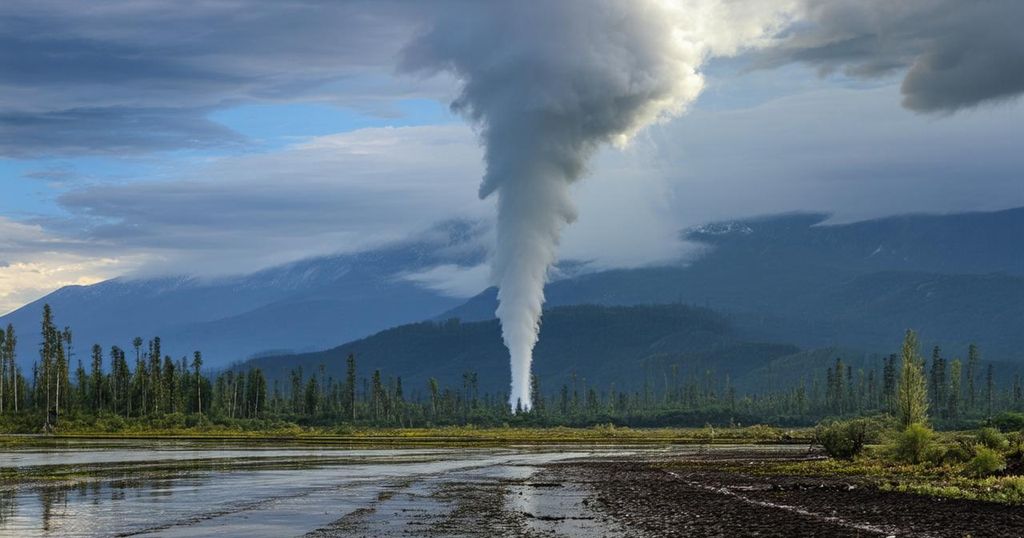UN Secretary-General Antonio Guterres warns that the world is experiencing severe repercussions due to inaction on climate change. A new report indicates that, without significant changes to current policies, global temperatures could rise by more than 3 degrees Celsius by the end of the century. Nations are called to enhance their climate commitments ahead of the COP29 summit.
The global community is confronting dire consequences due to its failure to effectively address climate change, as underscored by United Nations Secretary-General Antonio Guterres. In his recent address in response to a new UN report, Guterres emphasized that unless substantial policy changes are implemented swiftly, the world is on track for a temperature increase exceeding 3 degrees Celsius (5.4 degrees Fahrenheit) by the century’s end. This prediction starkly contrasts with the objectives set forth in the Paris Agreement of 2015, which aimed to cap warming at 1.5 degrees Celsius (2.7 degrees Fahrenheit). The United Nations’ annual Emissions Gap Report reveals that current commitments by nations are insufficient to mitigate impending climate risks. The report states that, barring significant advancements in emission reduction strategies, the planet could experience a rise in temperature by as much as 3.1C (5.6F) over pre-industrial levels by 2100. Guterres characterized the situation as precarious, stating, “We’re teetering on a planetary tightrope. Either leaders bridge the emissions gap, or we plunge headlong into climate disaster.” He highlighted the disproportionate impacts felt by the world’s most vulnerable populations, who are already grappling with devastating weather phenomena including floods, typhoons, and droughts. The report indicates a concerning increase in global greenhouse gas emissions, now reaching a record high of 57.1 gigatonnes of carbon dioxide equivalent. It projects that without urgent action, temperature rises will reach at least 2.6C (4.7F) to 2.8C (5F) by 2100, reinforcing the urgency for governments to enhance their climate commitments. As nations prepare for the upcoming United Nations Climate Change Conference (COP29) in Baku, Azerbaijan, discussions around updated emissions-reduction strategies, known as Nationally Determined Contributions (NDCs), will be critical. The report advocates a collective reduction of 42 percent in greenhouse gas emissions by 2030 and a staggering 57 percent by 2035 to have any hope of staying within the 1.5C target. Inger Andersen, Executive Director of the United Nations Environment Programme, urged delegates to harness the momentum of the Baku talks to amplify their efforts in addressing climate commitments. Guterres posited that advanced economies, particularly those belonging to the G20, must exhibit heightened ambition in their forthcoming NDCs, especially as they represent nearly 80 percent of global emissions. Activists from organizations like Greenpeace International lamented that climate inaction has reached a critical juncture, warning that while the situation is dire, it is not beyond remedy if corrective measures are undertaken immediately.
The topic revolves around the pressing issue of climate change and the global response to it. The United Nations has repeatedly underscored the importance of mitigating climate impacts through international agreements such as the Paris Agreement. This treaty aims to limit global warming to below 2 degrees Celsius above pre-industrial levels, with an aspiration to limit the increase to 1.5 degrees. Recent reports have revealed that current and projected policies are inadequate to meet these goals, warranting urgent attention from global leaders as they prepare for international negotiations.
In summary, the world is facing a critical moment regarding climate action, with alarming predictions indicating that temperatures could rise significantly if current policies remain unchanged. Secretary-General Antonio Guterres calls for immediate and decisive action from global leaders to bridge the emissions gap and prevent catastrophic climate outcomes. The upcoming COP29 conference presents a crucial opportunity for nations to enhance their commitments and take meaningful steps towards achieving the targets of the Paris Agreement.
Original Source: www.aljazeera.com






